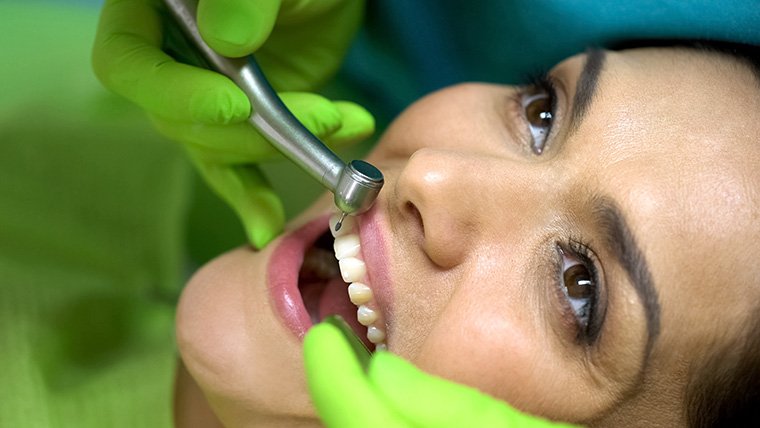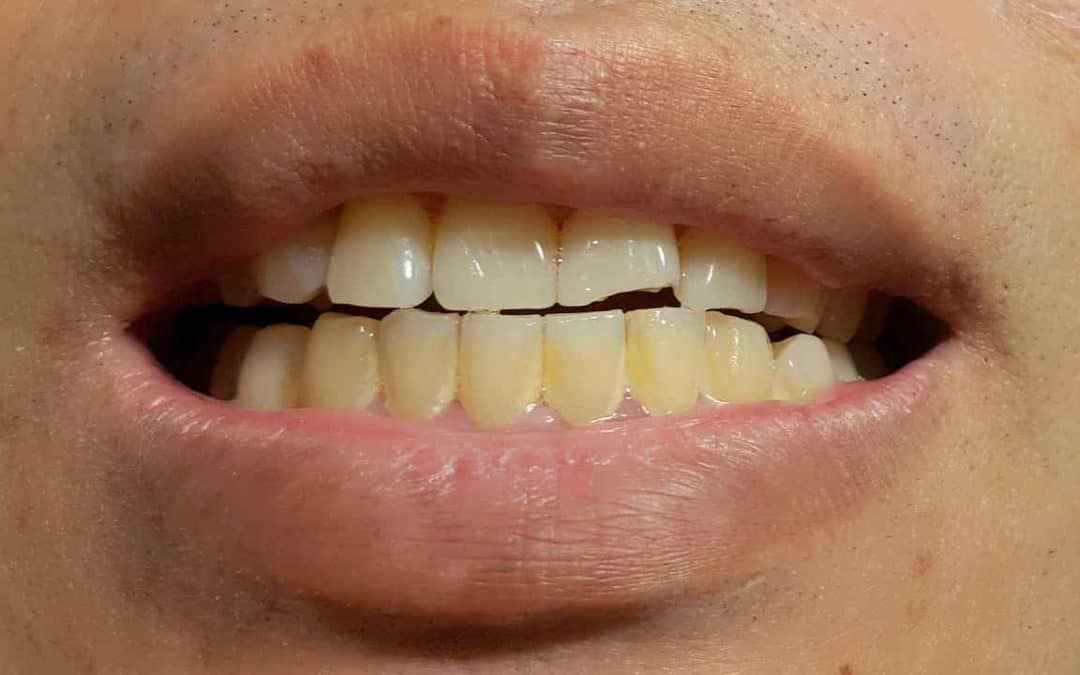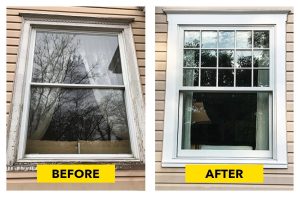Contents
- The Cost of Fixing a Chipped Tooth
- Dental Options for Fixing a Chipped Tooth
- Professional Evaluation and Diagnosis
- Determining the Severity of the Chip
- Different Types of Dental Chips
- Possible Treatment Approaches for Chipped Tooth
- Cost Factors Affecting Chipped Tooth Repair
- Average Cost of Common Chipped Tooth Treatments
- Dental Insurance Coverage for Chipped Tooth Repairs
- Ways to Manage and Reduce Chipped Tooth Repair Costs
- Consequences of Delaying Chipped Tooth Repair
Have you ever wondered about the cost of fixing a chipped tooth? Whether it’s caused by an accident or simply wear and tear, a chipped tooth can be both unsightly and uncomfortable. In this article, we will explore the various factors that contribute to the cost of fixing a chipped tooth, including the type of treatment required, the location of the tooth, and the expertise of the dentist. By the end, you’ll have a better understanding of what to expect and how to navigate the expenses associated with restoring your smile.
The Cost of Fixing a Chipped Tooth
Chipping a tooth can be an unfortunate and inconvenient experience, but the good news is that there are several dental options available to fix this issue. However, one important consideration before making any decisions is the cost associated with chipped tooth repair. In this article, we will explore the various dental options for fixing a chipped tooth, factors that determine the severity of the chip, different types of dental chips, possible treatment approaches, and the average cost of common chipped tooth treatments. We will also discuss dental insurance coverage for chipped tooth repairs and provide some tips on managing and reducing chipped tooth repair costs. Lastly, we will examine the consequences of delaying chipped tooth repair and why it is important to address this issue promptly.
Dental Options for Fixing a Chipped Tooth
When it comes to fixing a chipped tooth, there are several dental options available that can help restore both the appearance and functionality of your tooth.
Cosmetic Bonding
Cosmetic bonding is a popular and relatively affordable option for chipped tooth repair. It involves the application of a tooth-colored resin material to the affected area, which is then shaped and polished to match the surrounding teeth. This procedure is typically completed in a single dental visit and can be a great option for minor to moderate chips.
Dental Veneers
Dental veneers are custom-made, wafer-thin shells that are bonded to the front surface of the teeth. They can effectively cover up chips and improve the overall appearance of your smile. Veneers are typically made from porcelain or composite resin and can be a long-lasting solution for chipped teeth.
Dental Crowns
Dental crowns, also known as caps, are tooth-shaped restorations that are placed over a damaged tooth to provide protection and reinforcement. They can be used to fix more severe chips where a significant portion of the tooth structure is affected. Dental crowns are typically made from porcelain, metal, or a combination of both.
Dental Implants and Bridges
In cases where the chipped tooth cannot be salvaged, dental implants and bridges can be considered as replacement options. Dental implants involve the surgical placement of a titanium post into the jawbone, which serves as a foundation for a dental crown. Bridges, on the other hand, are prosthetic teeth that are anchored to the adjacent teeth for support. Both options can help restore the appearance and functionality of the missing tooth.
Professional Evaluation and Diagnosis
Before determining the most appropriate treatment for a chipped tooth, it is important to undergo a professional evaluation and diagnosis. This typically involves a dental examination, X-rays, and a consultation with a dentist.
Importance of Dental Examination
A dental examination allows the dentist to assess the extent of the chip, evaluate the overall oral health, and determine the best course of action. During the examination, the dentist will thoroughly inspect the affected tooth, surrounding teeth, and gums to identify any signs of further damage or potential complications.
X-rays and Imaging
X-rays and imaging are often necessary to get a detailed view of the tooth and its supporting structures. These images can help the dentist identify any underlying issues, such as fractures or damage to the root, which may not be visible to the naked eye.
Consultation with a Dentist
A consultation with a dentist is crucial to discuss the treatment options available for fixing the chipped tooth. The dentist will explain the pros and cons of each option, address any concerns or questions you may have, and provide personalized recommendations based on your specific case.
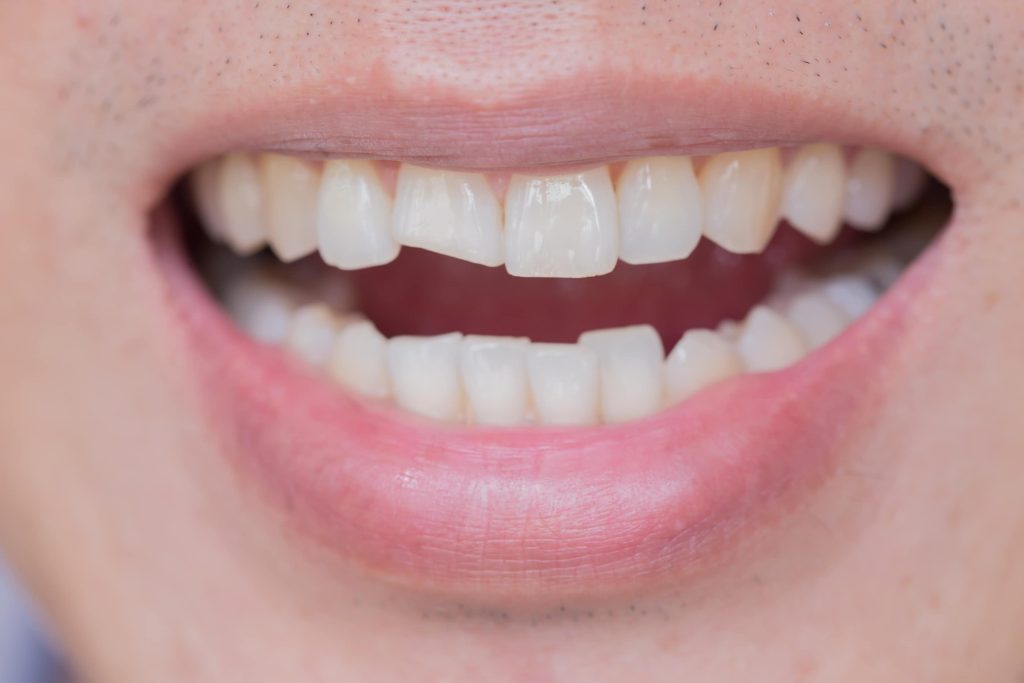
Determining the Severity of the Chip
The severity of the chip plays a significant role in deciding the most appropriate treatment approach. Different factors are taken into consideration to determine the severity of the chip.
Types of Chipped Teeth
There are various types of dental chips and fractures, each with their own severity level. Some common types include a cracked tooth, fractured cusp, split tooth, and vertical root fracture. The location and extent of the chip help determine the appropriate treatment option.
Extent and Location of the Chip
The size and location of the chip can impact the treatment approach. If the chip is small and does not affect the integrity of the tooth, a less invasive treatment, such as polishing or composite bonding, may be suitable. However, if a large portion of the tooth is chipped or if it affects the structural integrity, more extensive treatments like dental crowns or implants may be necessary.
Involvement of Nerves and Pulp
If the chip extends deep into the tooth, it may involve the nerves and pulp. In such cases, additional treatments like root canal therapy may be required to remove the damaged pulp and prevent infection.
Different Types of Dental Chips
Chipped teeth can come in various forms, each with its own characteristics and treatment considerations. Understanding the different types of chipped teeth can help determine the appropriate treatment approach.
Cracked Tooth
A cracked tooth refers to a tooth that has a crack extending from the chewing surface towards the root. It can cause significant pain and discomfort, especially when chewing. Treatment for a cracked tooth may involve a dental crown or root canal therapy, depending on the severity of the crack.
Fractured Cusp
A fractured cusp occurs when a portion of the tooth’s chewing surface breaks off. This type of chip is often less severe and may only require cosmetic bonding or the placement of a dental crown to restore the tooth’s appearance and functionality.
Split Tooth
A split tooth is characterized by a crack that has completely split the tooth into distinct segments. This is typically a more severe form of chipped tooth and may require extraction if the crack extends below the gum line. However, in certain cases, a split tooth can still be saved with root canal therapy and a dental crown.
Vertical Root Fracture
A vertical root fracture occurs when the root of a tooth cracks vertically. This type of chipped tooth is usually not salvageable and may require extraction. However, if the fracture is minor and does not involve the nerves, the tooth may still be treated with a crown.
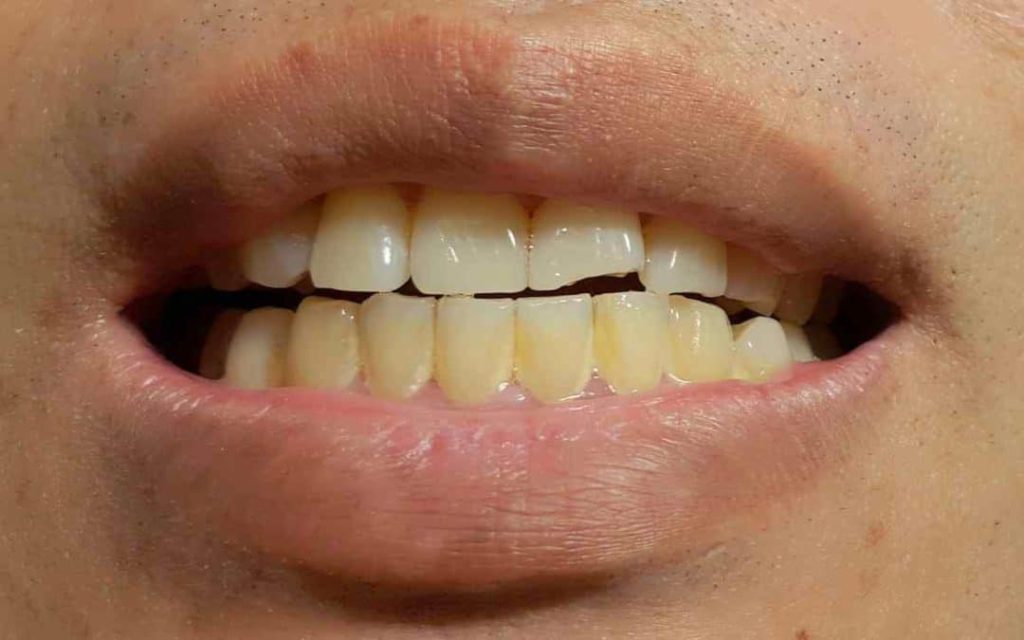
Possible Treatment Approaches for Chipped Tooth
The recommended treatment approach for a chipped tooth depends on several factors, including the severity of the chip, its location, and your overall oral health. Here are some possible treatment approaches:
No Treatment Necessary for Minor Chips
In cases where the chip is small and does not cause any pain or functional issues, no treatment may be necessary. Your dentist will closely monitor the tooth to ensure that there are no changes or complications over time.
Smoothing and Polishing the Chip
For minor chips that do not pose any structural concerns, the dentist may opt for smoothing and polishing the rough edges to improve the tooth’s appearance. This is a non-invasive and cost-effective option that can be done quickly.
Composite Bonding
Composite bonding involves the application of a tooth-colored resin material to the affected tooth, which is then sculpted and bonded to restore its shape and appearance. This option is suitable for moderate-sized chips and can be completed in a single dental visit.
Porcelain Veneers or Crowns
For more significant chips, porcelain veneers or crowns may be recommended. Veneers are thin shells that are custom-made and bonded to the front surface of the teeth, while crowns fully cover the entire tooth. Both options provide durability and a natural-looking appearance.
Endodontic Treatment or Root Canal Therapy
If the chip extends into the pulp chamber of the tooth, root canal therapy may be necessary to remove the damaged pulp and protect against infection. Following root canal therapy, a dental crown is often placed on the tooth to strengthen and protect it.
Tooth Extraction and Replacement Options
In cases where the chipped tooth cannot be salvaged, extraction may be necessary. After the extraction, various replacement options, such as dental implants, bridges, or dentures, can be considered to restore the appearance and functionality of the missing tooth.
Cost Factors Affecting Chipped Tooth Repair
The cost of fixing a chipped tooth can vary depending on several factors. Understanding these cost factors can help in planning for the financial aspect of the treatment.
Location and Reputation of the Dental Practice
The location and reputation of the dental practice can influence the cost of chipped tooth repair. Dental practices located in metropolitan areas or those with a high demand for services may have higher fees.
Experience and Specialization of the Dentist
The experience and specialization of the dentist can also impact the cost. Dentists with more years of experience or additional training in cosmetic dentistry may charge higher fees for their services.
Geographical Location
The cost of dental treatments can vary significantly depending on the geographical location. Factors such as the local cost of living and regional competition can influence the pricing.
Materials Used
The type and quality of materials used for chipped tooth repair can affect the overall cost. Higher-quality materials, such as porcelain veneers or metal-free crowns, may have a higher price tag compared to composite bonding or metal-based restorations.
Additional Procedures or Treatments Required
If the chipped tooth requires additional procedures or treatments, such as root canal therapy or tooth extraction, the overall cost will be higher to account for these additional services.
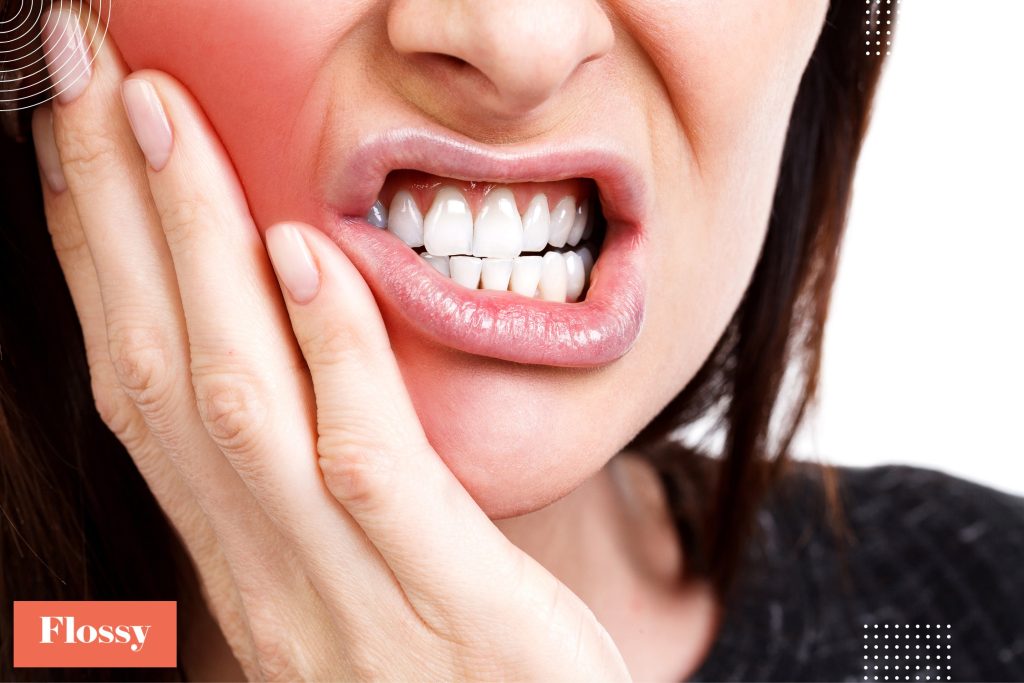
Average Cost of Common Chipped Tooth Treatments
The cost of chipped tooth treatments can vary depending on the specific procedure and the factors mentioned above. Here is an average cost range for some common chipped tooth treatments:
Cosmetic Bonding
Cosmetic bonding typically costs between $100 to $400 per tooth, depending on the complexity of the case and the dentist’s fees.
Dental Veneers
The cost of dental veneers can range from $500 to $2,500 per tooth. The price may vary depending on the type of veneer (porcelain or composite) and the geographic location.
Dental Crowns
Dental crowns can cost anywhere from $800 to $1,500 per tooth. The price can vary based on the material used, the complexity of the case, and the dentist’s fees.
Root Canal Therapy
The cost of root canal therapy can range from $800 to $1,500 per tooth. This treatment is typically more expensive due to the complexity and additional steps involved.
Tooth Extraction and Replacement
Tooth extraction costs can vary from $75 to $900 per tooth, depending on the complexity of the case. Replacement options like dental implants, bridges, or dentures have their own costs, which can range from $1,000 to $4,000 or more per tooth.
Dental Insurance Coverage for Chipped Tooth Repairs
Many dental insurance plans cover at least a portion of the costs associated with chipped tooth repairs. However, it is important to understand the extent of coverage and any limitations or exclusions.
Understanding Dental Insurance Coverage
Different dental insurance plans have varying levels of coverage for chipped tooth repairs. Some plans may cover a certain percentage of the costs, while others may have a fixed dollar amount or an annual maximum limit. It is crucial to review your insurance policy or consult with your provider to understand what is covered and what costs you may be responsible for.
Typical Coverage for Chipped Tooth Repair
Dental insurance plans often consider chipped tooth repair as a necessary dental procedure, especially if it affects the tooth’s functionality. However, coverage amounts can vary. Cosmetic procedures, such as porcelain veneers, may have limited or no coverage under some plans, as they are considered elective treatments. It is important to check your plan’s coverage and discuss potential treatment options with your dentist.
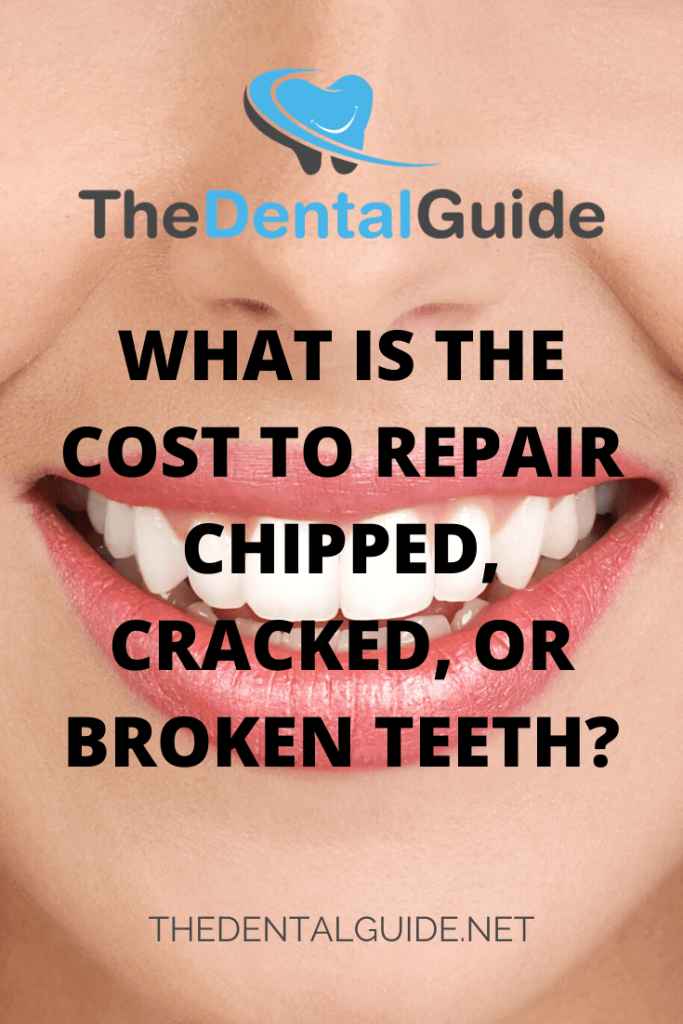
Ways to Manage and Reduce Chipped Tooth Repair Costs
If you are concerned about the cost of fixing a chipped tooth, there are several ways to manage and reduce the overall expenses.
Seek Multiple Opinions and Quotes
Consider getting opinions and quotes from different dental practices to compare the treatment plans and associated costs. This can give you a better understanding of the average cost in your area and help you make an informed decision.
Consider Dental Schools and Clinics
Dental schools and clinics often offer reduced-cost dental services as part of their training programs. While the treatment may be provided by students under the supervision of experienced dentists, it can be a more affordable option without compromising on quality.
Inquire about Financing Options
Many dental practices offer financing options, such as dental payment plans or third-party financing, to help patients manage the cost of treatment. These options allow you to spread the payments over time, making it more budget-friendly.
Discuss Alternative Treatments
When discussing treatment options with your dentist, it is worth exploring alternative treatments that may be more cost-effective. For example, composite bonding may be a more affordable option compared to porcelain veneers for certain cases.
Consequences of Delaying Chipped Tooth Repair
While the cost of fixing a chipped tooth may seem burdensome, delaying the repair can have consequences that may result in even higher costs and further complications.
Increased Risk of Further Damage or Infection
Leaving a chipped tooth untreated increases the risk of further damage or infection. A chip can provide an entry point for bacteria, leading to decay or even an abscess. If the chip worsens, it may require more extensive and costly treatments in the future.
Prolonged Discomfort and Sensitivity
A chipped tooth can cause discomfort and sensitivity, especially when eating or drinking hot and cold foods. Delaying treatment means prolonging these symptoms and potentially affecting your quality of life.
Impact on Oral Health and Function
The function of your teeth is essential for biting, chewing, and speaking properly. A chipped tooth can affect your oral health and make these everyday activities more difficult. Fixing the chipped tooth promptly helps preserve your oral health and maintain normal functioning.
In conclusion, the cost of fixing a chipped tooth can vary based on several factors, including the severity of the chip, type of treatment, and location of the dental practice. Understanding the available dental options, the factors that determine the severity of the chip, and the potential consequences of delaying treatment can help you make informed decisions. It is always advisable to consult with a dentist, review your dental insurance coverage, and explore ways to manage and reduce the overall costs. Remember, addressing a chipped tooth promptly not only helps restore your smile but also prevents further complications and ensures your long-term oral health and well-being.
